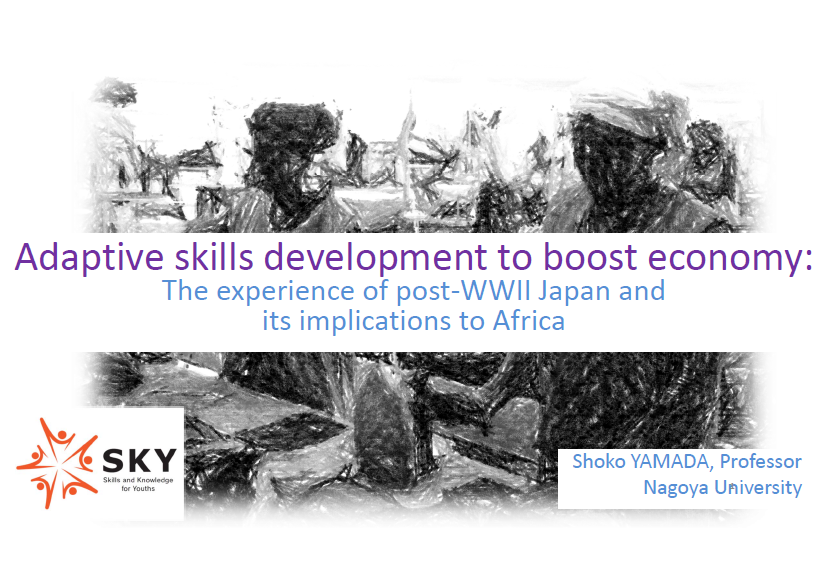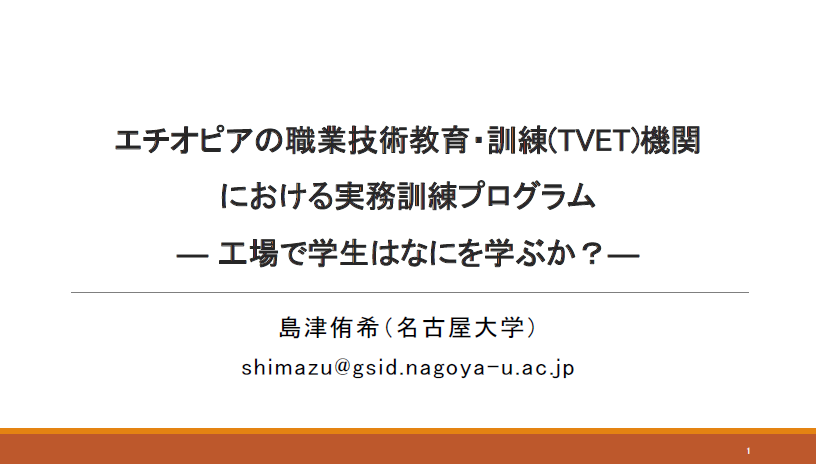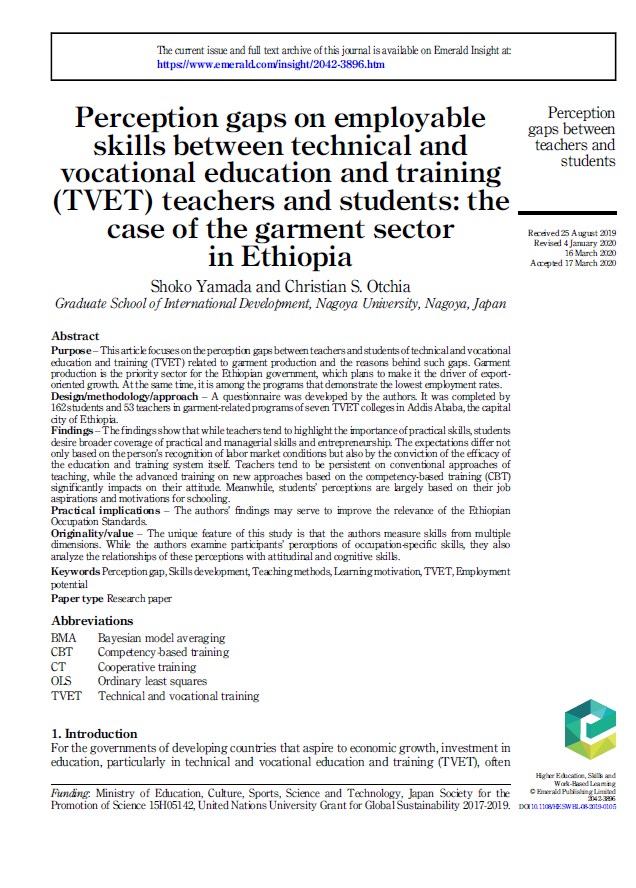Japanese
島津侑希「職業技術教育・訓練(TVET)における非認知能力育成―エチオピアの公立TVET 校での「他者と働く力」の 育成―」国際開発学会第31回全国大会
オンラインで開催された国際開発学会第31回全国大会における企画セッション「産業人材の技能形成と非認知的能力」にて、SKYプロジェクトメンバーの島津助教が発表した資料
発表題目「職業技術教育・訓練(TVET)における非認知能力育成―エチオピアの公立TVET 校での「他者と働く力」の 育成―」
 Skills development for workers in the global south
Skills development for workers in the global south

SKYプロジェクト関係者の論文や関連資料をご覧いただけます。
SKY[Skills and Knowledge for Youth] ホーム 論文・関連資料紹介

EnglishOther
The summary of Dr. Otchia's presentation on Japan Society for Afrasian Studies (JSAS) webinar "COVID-19 and Beyond: A Perspective from Japan and South Africa". This webinar discussed how ongoing initiatives can help mitigate the impacts of the COVID-19 pandemic, either in the immediate coping phase or when economies start to recover. Dr. Otchia made a presentation about the Japan's response to the COVID-19 with statistical data.

EnglishOther
The interactive online meetings entitled “Skills for Economic diversification in Central Africa: leveraging experiences from successful comparators and building partnerships." held by the Sub-Regional Office for Central Africa of the United Nations Economic Commission for Africa on 30 July, 2020.
In the meeting, Professor Yamada, SKY project leader, made a presentation under the title of "Adaptive skills development to boost economy: The experience of post‐WWII Japan and its implications to Africa".

Japaneseその他
日本アフリカ学会第57回学術大会でのプレゼンテーション資料
English Abstract
TVET (Technical and Vocational Education and Training) students need to possess the necessary knowledge and skills required by the labor market. To maintain such knowledge and skills, the Ethiopian government has implemented the cooperative training program. However, many researchers have questioned the effect of the program. They point out the weak linkage between the TVET institute and the factory hinders the students from learning. To find out the current situation and issues of the program, the author conducted interviews with the stakeholders and field observation at the factory. The author found there was no common understanding of the program between the TVET institute and the factory. The TVET institute expects the factory to train practical skills, while the factory considers the students as cheap labor. This mismatch makes the students difficult to learn at the factory. The author also found that non-cognitive skills, especially communication skill and punctuality, are essential for the students to learn at the factory. Since the factory has a limited number of machines, only a few students who came early can use them. Also, workers at the factory are too busy to take care of TVET students, so the students must communicate with the workers well to find out somehow what they want to know. This situation gives some of the students who are not aggressive/sociable tough times at the factory.

ArticleEnglish
The paper “Perception gaps on employable skills between technical and vocational education and training (TVET) teachers and students: the case of the garment sector in Ethiopia” by Sky Project members Dr.Otchia and Dr. Yamada was published in the Journal of Higher Education, Skills and Work-Based Learning. This paper focuses on the perception gaps between teachers and students of technical and vocational education and training (TVET) related to garment production and the reasons behind such gaps. Please click the picture for more details.